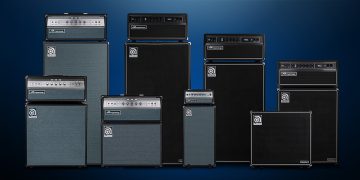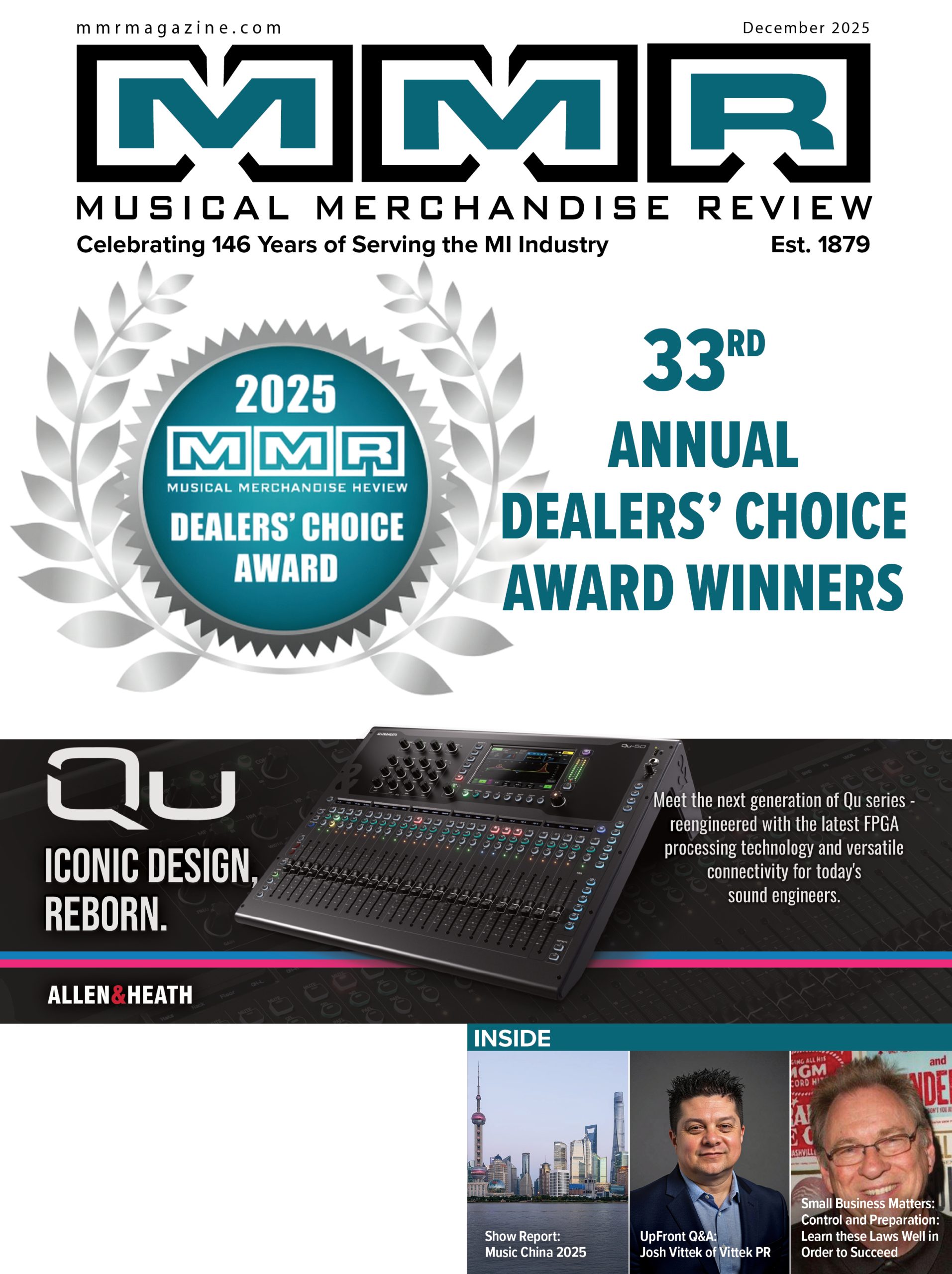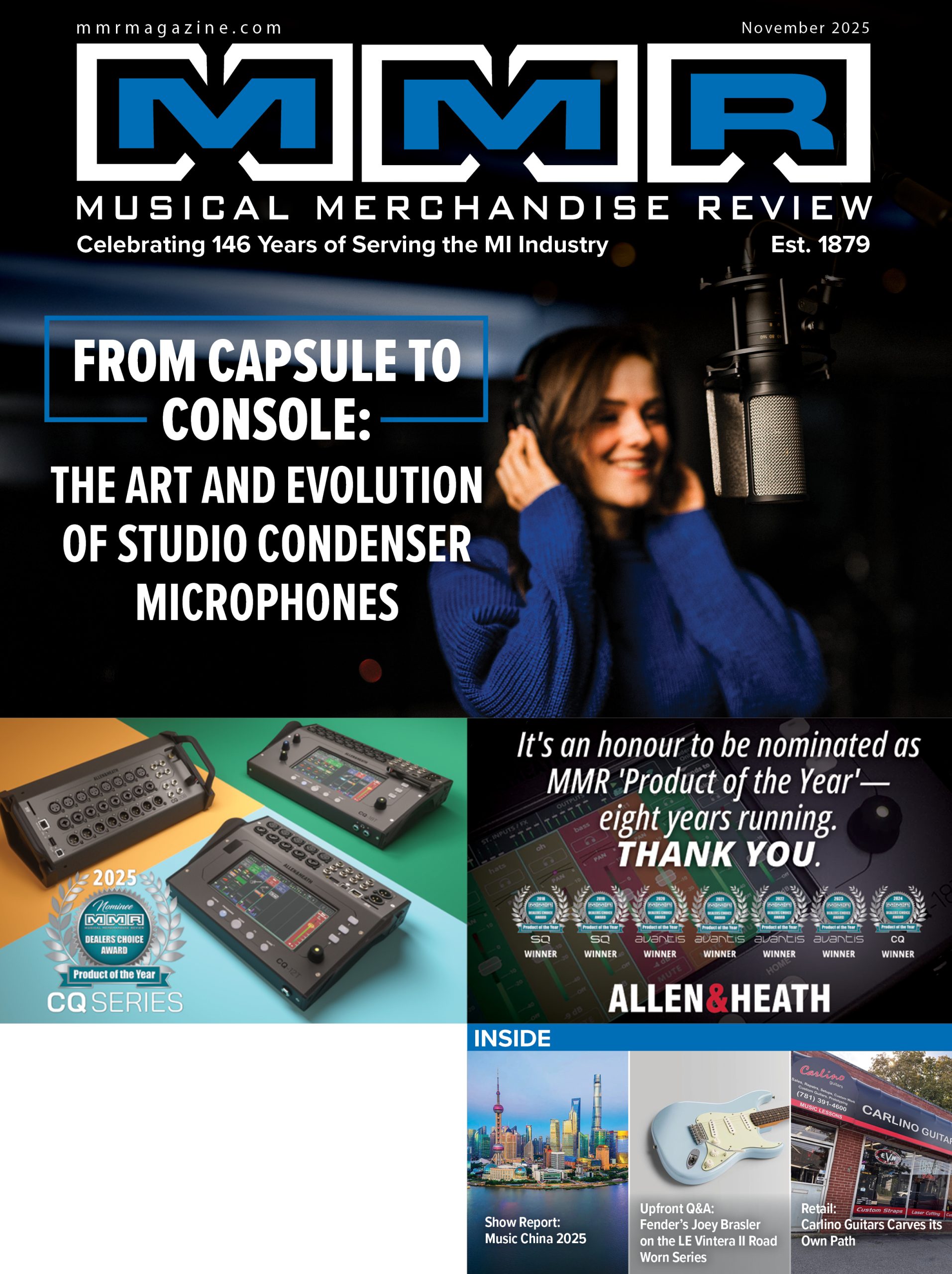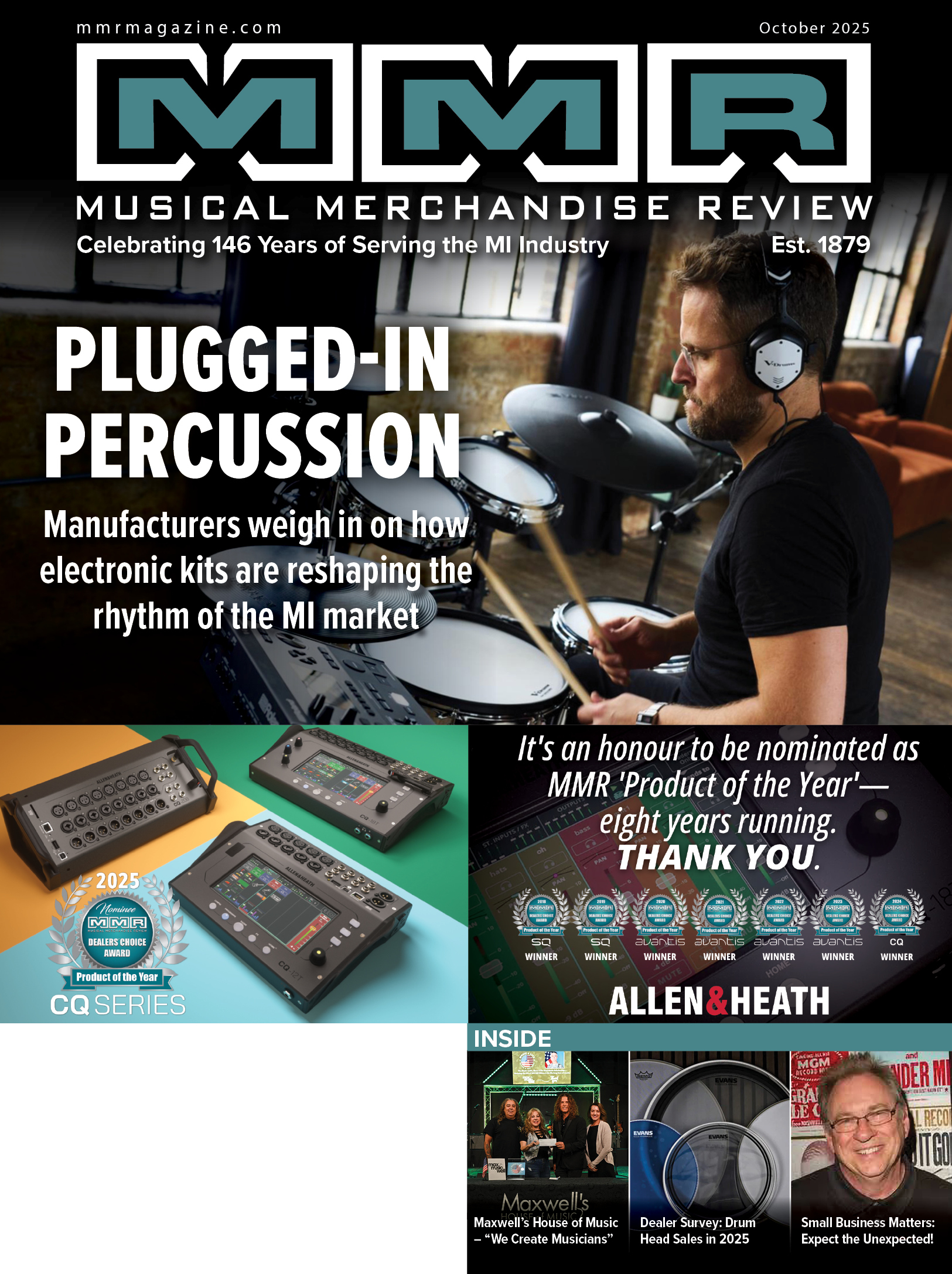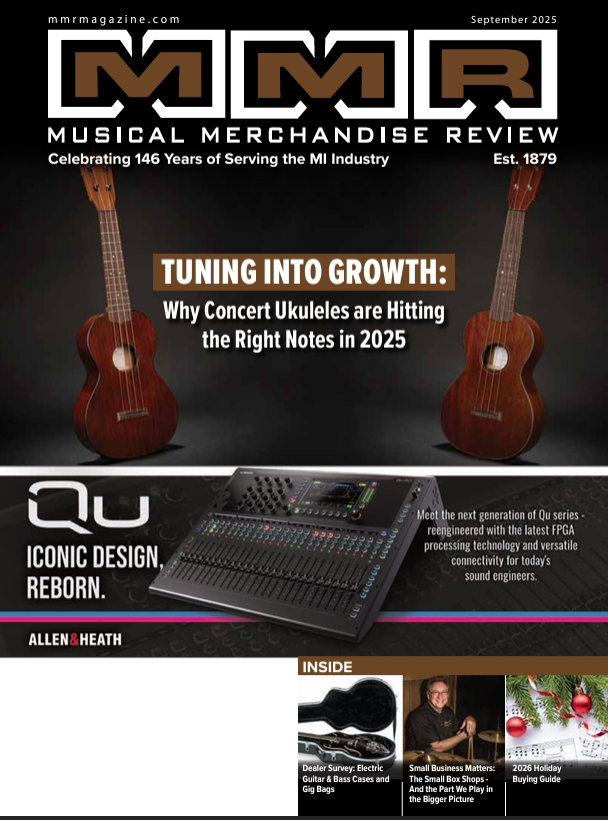
One “silver lining” of the past two-plus years has been folks either taking up a musical instrument for the first time, or rediscovering and re-embracing musical endeavors from their past. In particular, fretted instruments have enjoyed a surge in sales. Fender famously had its biggest year ever in 2020. Andy Mooney and I chatted about the then-emerging trend for a feature in the fall of that year. What are your thoughts on the long-term impact of this spike in both interest and sales?
Overall, we feel this is a longterm trend – even if only a percentage stick with it in the end, that percentage is incremental to the overall growth of the industry with a lifetime value of many instruments and accessories! Going back to Andy’s original premise several years ago, it was estimated that 90 percent of new players quit within the first three months of picking up guitar for the first time and the remaining 10 percent became players for life. His vision was (and still is) if that retention rate went up to 20 percent, it would double the size of the industry! That being said, I think this movement has legs, and the growth will continue – maybe not at the same rate that it was, but the waterline is now higher.
In addition to people buying and playing instruments, more and more individuals and bands are also recording, live-streaming, and so on – and gear that facilitates such activities is evolving rapidly. Fender recently acquired PreSonus, a major player in this market segment. What are the plans post-acquisition and how do you see recording – specifically home recording or “budget” recording – impacting popular culture and MI retail?
We always think in terms of the user and tools they need to make music. With the PreSonus acquisition, we knew that a segment of players exist that are choosing to plug their guitars and basses into an interface over a traditional amplifier. We’ve been offering amps with direct outs and impulse responses for this same reason, but bringing them into the FMIC family just makes sense for where music is going and how people are creating music. In this social media dominant culture, capturing audio and video are massively important so it made a lot of sense to us. Anyone can record, and unlike “the old days” where the studio was something bands and artists aspired to after years, recording is immediate – people capture playing their first song, which is great and fosters community. The recording side of the business also opens up a whole new world of artists and creators – beat makers, et cetera – not just guitarists! Many new creatives are soloists – moving from an MPC or midi controller to a bass, to synth, and then guitar. For retail, this has great implications as each customer like this has a wider band of products potentially of interest to them. As players evolve we want to evolve and adapt with them.
Speaking to both of the above points, Fender has been right on top of these trends with significant new product and instrument launches, as well as the wildly popular Fender Play learning platform. How did FMIC anticipate and react to the emerging/increasing demand and what’s on the horizon to both satisfy the current market and continue to attract more new players and grow the culture of music-making?
On the product side, we are conscious of our selection and lineup speaking to a very diverse base – from age, genre, gender, et cetera. We truly strive to remain relevant and keep our heads in the “now,” despite being a 75-year-old company. Play continues to evolve and expand with a goal of continuing to add features and content to continue to be the best solution for new players.
How do you think retailers can best serve this growing number of MI consumers in terms of in-store experience, services offered, promotions, display, and so on?
That’s a question with several answers. Many retailers are finding great success by specializing and building a reputation and community around that specialty. Many others have chosen to (or had to) embrace taking their business online during the pandemic. There’s no doubt more and more of the business is transacting online. I think whether in physical or online retail, the word “experience” really matters – the look and feel of a storefront, the navigability of the selection and product information to help guide the sale is paramount.
Any general predictions for the coming months – for Fender and for the MI industry as a whole?
Right now it’s more important than ever to stay current and relevant – respecting the past and history, but with the other foot firmly in the present. The business keeps evolving, and we have to evolve with it. We choose to keep pushing forward, even if we were to fail here and there. That just tells us we’re not being complacent. The MI industry, as a whole, has a real opportunity to do all it can to keep as many of these new players in the community as we can… it’s incumbent upon all of us. If we do that, the future is very bright indeed!















